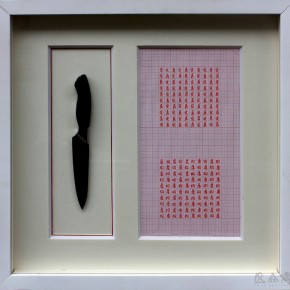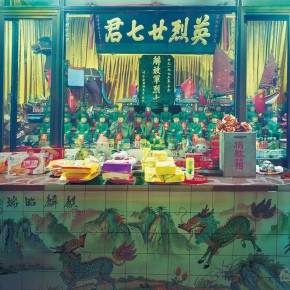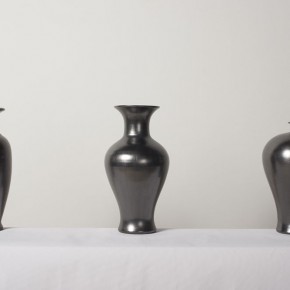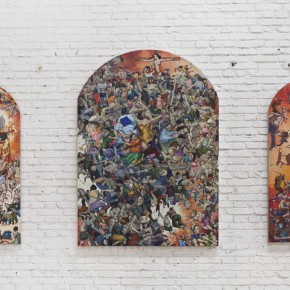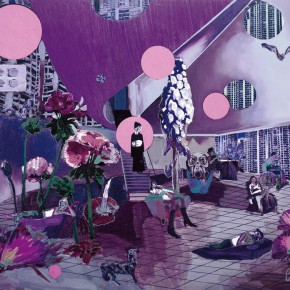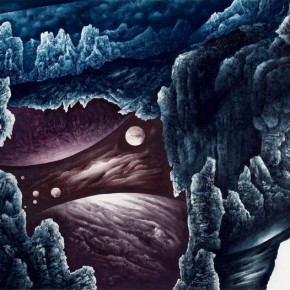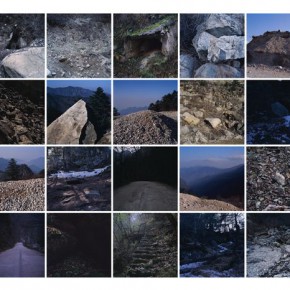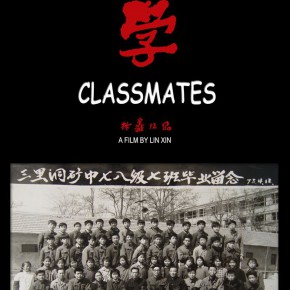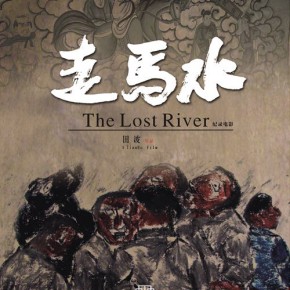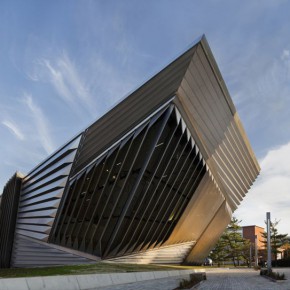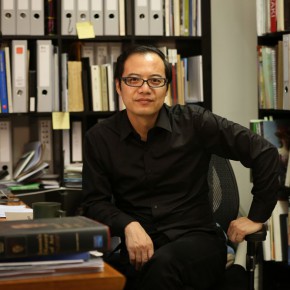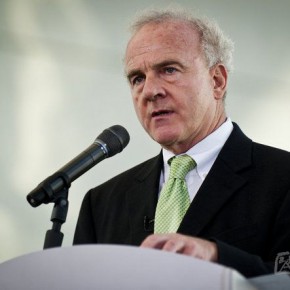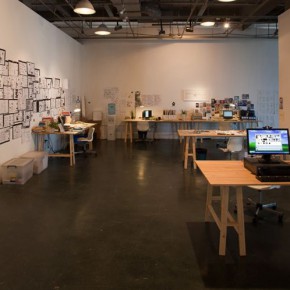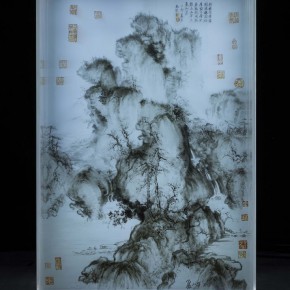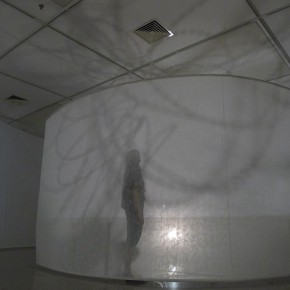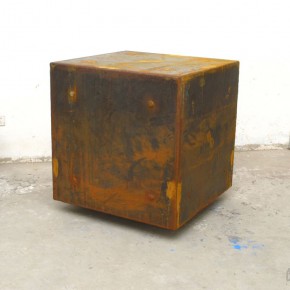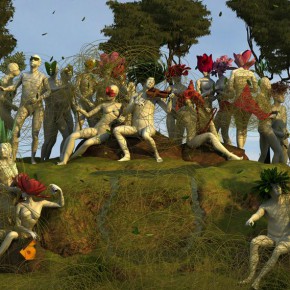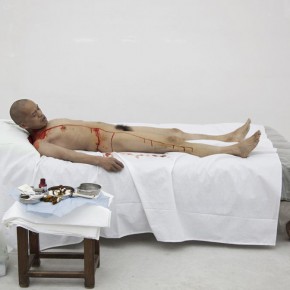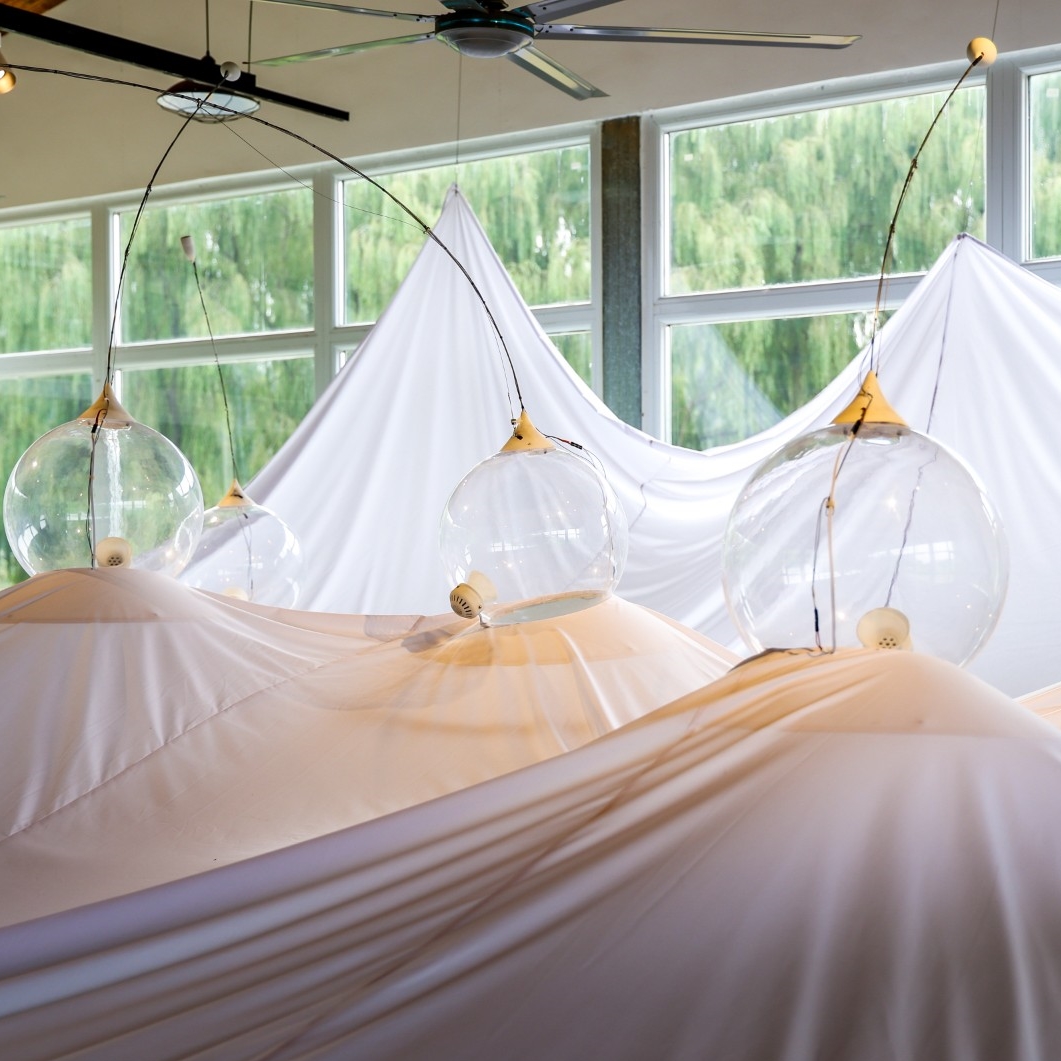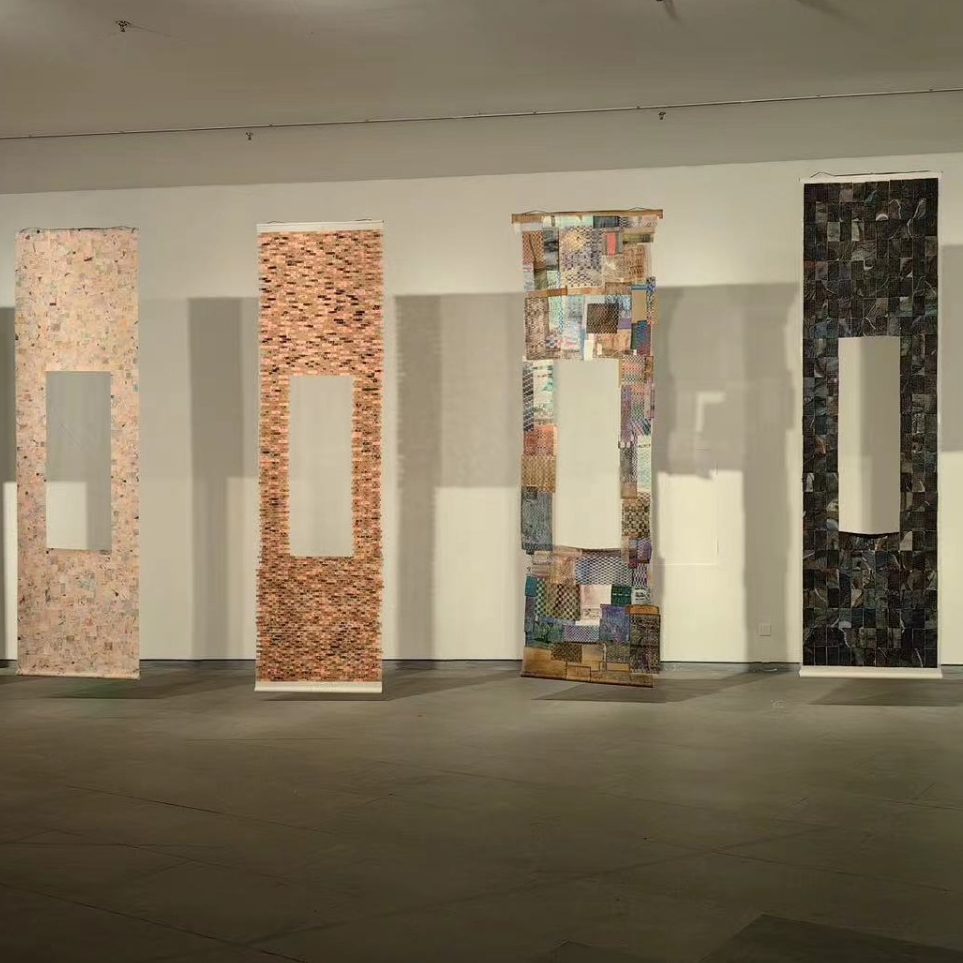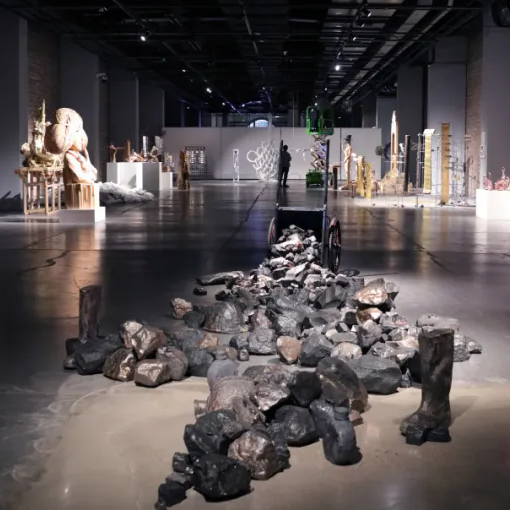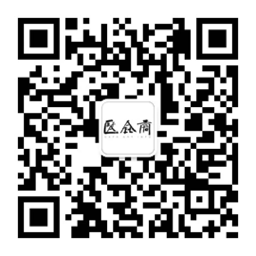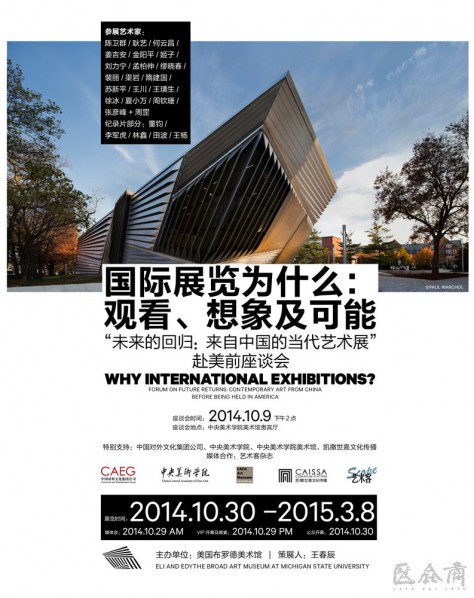
The response of contemporary artists to China’s rapid development and constant cultural transformation will be explored by The Eli and Edythe Broad Art Museum at Michigan State University (Broad MSU) in the exhibition Future Returns: Contemporary Art from China on view October 29, 2014 through March 8, 2015.
Featuring a diverse range of works by 24artists—including Xu Bing, Su Xinping, Sui Jianguo, Jizi, Jiang Ji’an, He Yunchang, Liu Lining, and Pei Li—Future Returns examines, through a unique cultural lens, socio-economic and political situations in China over the last three decades that have prompted calls to revisit, rethink, and redefine the nation’s culture and identity. The exhibition will include works across a variety of media, such as paintings, photography, site-specific installations, digital art, and documentary films, and will showcase both emergent and established practitioners who have contributed to China’s celebrated artistic community. Future Returns is organized by Broad MSU Adjunct Curator Dr. Wang Chunchen.
“The Broad MSU has brought a global focus to East Lansing, examining the major issues of our time through the work of contemporary artists,” said Michael Rush, Founding Director of Broad MSU. “As China’s role as a global power continues to grow, so has its position in the contemporary art world. This exhibition will provide a rare opportunity to present important works by this group of Chinese artists from the perspective of a curator based in mainland China.”
The exhibition is organized in three thematic sections: Culture and Re-mapping considers the ways in which emerging artistic tendencies in China reflect Chinese culture, such as Jiang Ji’an’s works are the metamorphosis of Chinese art materials and objects; Reality and Possibility examines artists’ use of metaphorical narratives to speak about past, present, and future social changes, such as Qu Yan’s Idols-Making Space; and Future and Imagination looks closely at the observations, thoughts, and hopes of Chinese artists as they envision their lives, such as Miao Xiaochun’s Restart. Spread across three galleries in Broad MSU’s Zaha Hadid-designed building, Future Returns will debut works never before seen in the public—including Jizi’s The Epic of Nature, a monumental 130 feet long painting, and a sprawling site-specific installation by Wang Huangsheng that responds to the angular lines of the Broad MSU’s gallery.
“Future Returns presents a focused selection of work by contemporary Chinese artists that considers the relationship between the traditions of the past and current realities all the while projecting into the endless possibilities of the future,” said Dr. Wang Chunchen, Curator at Broad MSU. “As we bring these works to East Lansing, we can further establish Broad MSU as a center for the questioning and understanding of the contemporary world through engagement with artists and artwork from across the globe.”
Artists and filmmakers featured in the exhibition include: Chen Weiqun, Dong Jun, Geng Yi, He Yunchang, Jiang Ji’an, Jin Yangping, Jizi, Li Junhu, Lin Xin, Liu Lining, Miao Xiaochun, Pei Li, Qu Yan, Su Xinping, Sui Jianguo, Tian Bo, Wang Chuan, Wang Huangsheng, Wang Yang, Xu Bing, and Zhou Qinshan.
This exhibition means a new form of cultural and art exchange between China and America, since it is Chinese curator to curate Chinese exhibitions in American art museum, which will bring the professional perspectives to look at Chinese art and its context to the higher level. Also such exhibitions will promote the research of Chinese contemporary art by American intelligentsia and the public knowledge of China and its art.
Exhibition Credit
Future Returns: Contemporary Art from China is organized by the Eli and Edythe Broad Art Museum at MSU and curated by Chunchen Wang, Adjunct Curator. Generous support is provided by MSU’s College of Arts and Letters. Additional funding is provided by Dr. Linda Nelson and the Broad MSU’s general exhibitions fund.About Dr. Wang Chunchen
Dr. Wang Chunchen is Head of the Department of Curatorial Research at the art museum of the Central Academy of Fine Arts (CAFA), Beijing, and Adjunct Curator at the Eli and Edythe Broad Art Museum at MSU. In 2013 Wang curated the China pavilion, titled Transfiguration, at the 55th Venice Biennale. In 2009 he was honored with the coveted Chinese Contemporary Art Award, one of numerous awards he has received for his art criticism. Over the past six years he has published many articles on almost every aspect of Chinese contemporary art, which are published as The Democracy of Art and The Politics of Images, and his translations of art historical and theoretical texts such as Arthur C. Danto’s After the End of Art and The Abuse of Beauty and Jonathan Fineberg’s Art Since 1940, among others, have had a profound impact on contemporary art criticism in China.
As a curator, some of Wang’s most notable shows include Super-Organism: CAFAM Biennale 2011, Beijing; Infinity at Galerie Iris Schuhmacher, Berlin (2009); Mixed Maze at the Red Mansion Foundation, London (2008); China’s Contemporary Art Today, Ho-Am Art Museum, Seoul (2008, co-curated); Supernatural: China’s Photography in the New Century, ArtGate Gallery, New York (2008); Dynamics of Images, 798 Photo Gallery, Beijing (2008); Hetero-Imagery: A Kind of Psychology of Urban Image, 798 Photo Gallery, Beijing (2008).
About MSU
Founded in 1855, Michigan State University (MSU) is a public research universitylocated in East Lansing, Michigan United States and is the first land-grant institution that was created to serve as a model for future land-grant colleges in the country under the 1862 Morrill Act.MSU pioneered the studies of packaging, hospitality business, supply chain management, and telecommunication. It is considered to be an American Ivy universities, which recognizes top universities in the United States.
Following the introduction of the Morrill Act, the college became coeducational and expanded its curriculum beyond agriculture. Today, MSU is the seventh-largest university in the United States (in terms of enrollment), with 49,300 students (2013–14) and 2,954 faculty members.
There are about 45,000 studentsof Michigan State University from all over the world, forming a diversified and friendly community. The school has been attracting international students, and more than a half of all the international students of MSU are from China, so that they play an important role. In the autumn of 2008, there were a total of 1298 Chinese students in MSU, while in the autumn of 2013, there were about 4419 Chinese students, including 3499 undergraduate students.These Chinese students are regarded as a huge potential market by local industries.
About Broad Art Museum
The Eli and Edythe Broad Art Museum is the art museum of Michigan State University. Also an engaged public institution, the Broad MSU is a contemporary museum devoted to the exploration and exhibition of significant art from around the globe. This international focus is supported also by the contextualizing of contemporary art within the history of art by virtue of our historical collection. The Broad MSU is a place where artists’ ideas, words, and actions create a vibrant center for questioning and understanding the modern world.
Dedicated to experimentation and study, the Broad MSU is a laboratory for the new, grounded in a deep appreciation for the historical. With a historic collection containing objects from the Greek and Roman periods, through the Renaissance, and on to the Modern, the Broad is unique among contemporary art museums in its ability to frame the broad range of contemporary art practices within a firm historical context.
Designed by Pritzker Prize-winning architect Zaha Hadid, the museum features a striking fa?ade of pleated stainless steel and glass, signaling the museum and the university’s dynamic vision. More than 70 percent of the 46,000-square-foot facility is dedicated to exhibition space. The museum is named after Eli and Edythe Broad, longtime supporters of Michigan State University, who provided the gift of lead for the museum.
There are more than 40000 students in Michigan State University, advanced in environmental protection, energy, agriculture, history, art and other professional academic and scientific research, having anextensivecooperationand communication with China. With the establishment of Broad Art Museum, it will deeply unfold a cultural and art communication with China, and specially appoints Wang Chunchen as the curator which is an initiative of the international plan, making efforts to take the university as a platform for a comprehensive dialogue and communication between international contemporary art and culture. First directorMichael Rush is a famous American critic, curatorand expert inthe study of video art, and his book “Video Art” becomes the classic of the field.
Future Returns: Contemporary Art from China is organized by the Eli and Edythe Broad Art Museum at MSU and curated by Dr. Wang Chunchen, adjunct curator. Generous support is provided by MSU’s College of Arts and Letters. Additional funding is provided by Dr. Linda Nelson; Beijing Caissa Culture Communication Co., Ltd.; the Ministry of the People's Republic of China, China Arts and Entertainment Group; and the Broad MSU’s general exhibitions fund.About the exhibition
Curator: Wang Chunchen
Duration: October 30, 2014 – March 8, 2015
Venue: Eli and Edythe Broad Art Museum at Michigan State University
Artists featured in the exhibition include: Chen Weiqun, Geng Yi, He Yunchang, Jiang Ji’an, Jin Yangping, JiZi, Liu Lining, Meng Baishen, Miao Xiaochun, Pei Li, Qu Yan, Sui Jianguo, Su Xinping, Wang Chuan, Wang Huangsheng, Xu Bing, Xia Xiaowan, Zhou Qinshan, Zhang Yanfeng, Zhou Gang, and filmmakers: Dong Jun, Li Junhu, Lin Xin, Tian Bo, Wang Yang
Courtesy of the artists and Eli and Edythe Broad Art Museum at Michigan State University, partially translated by Chen Peihua and edited by Sue/CAFA ART INFO.


